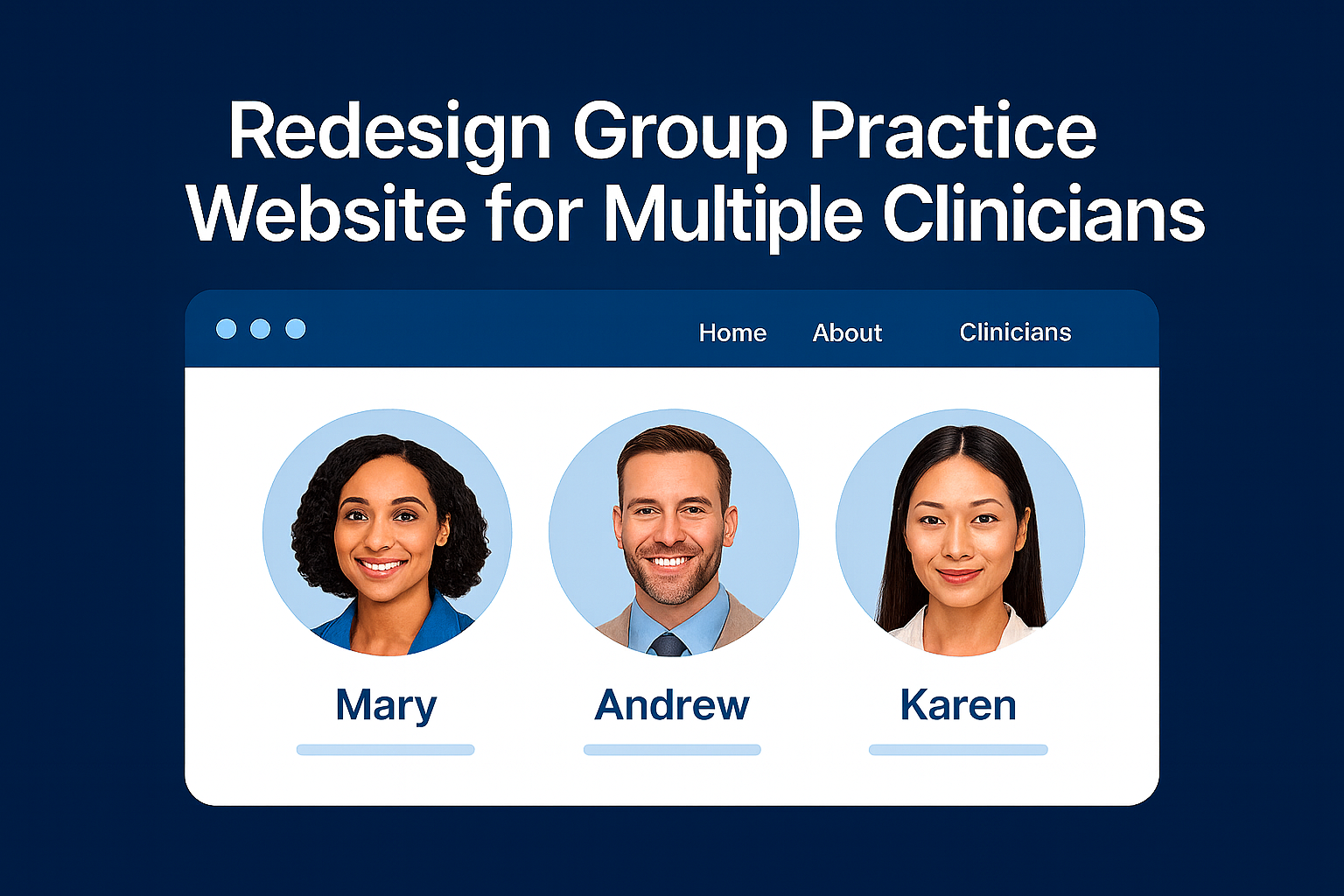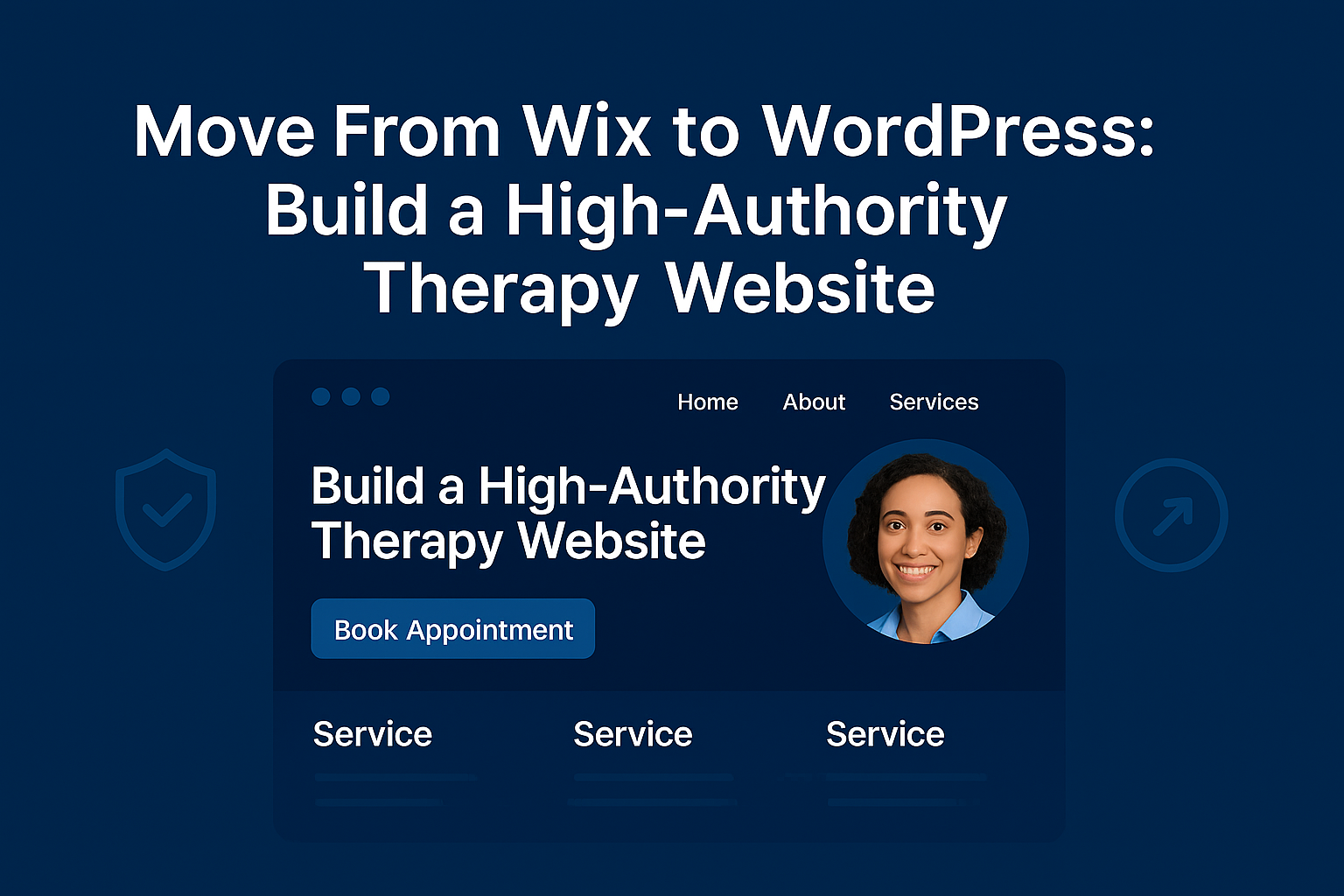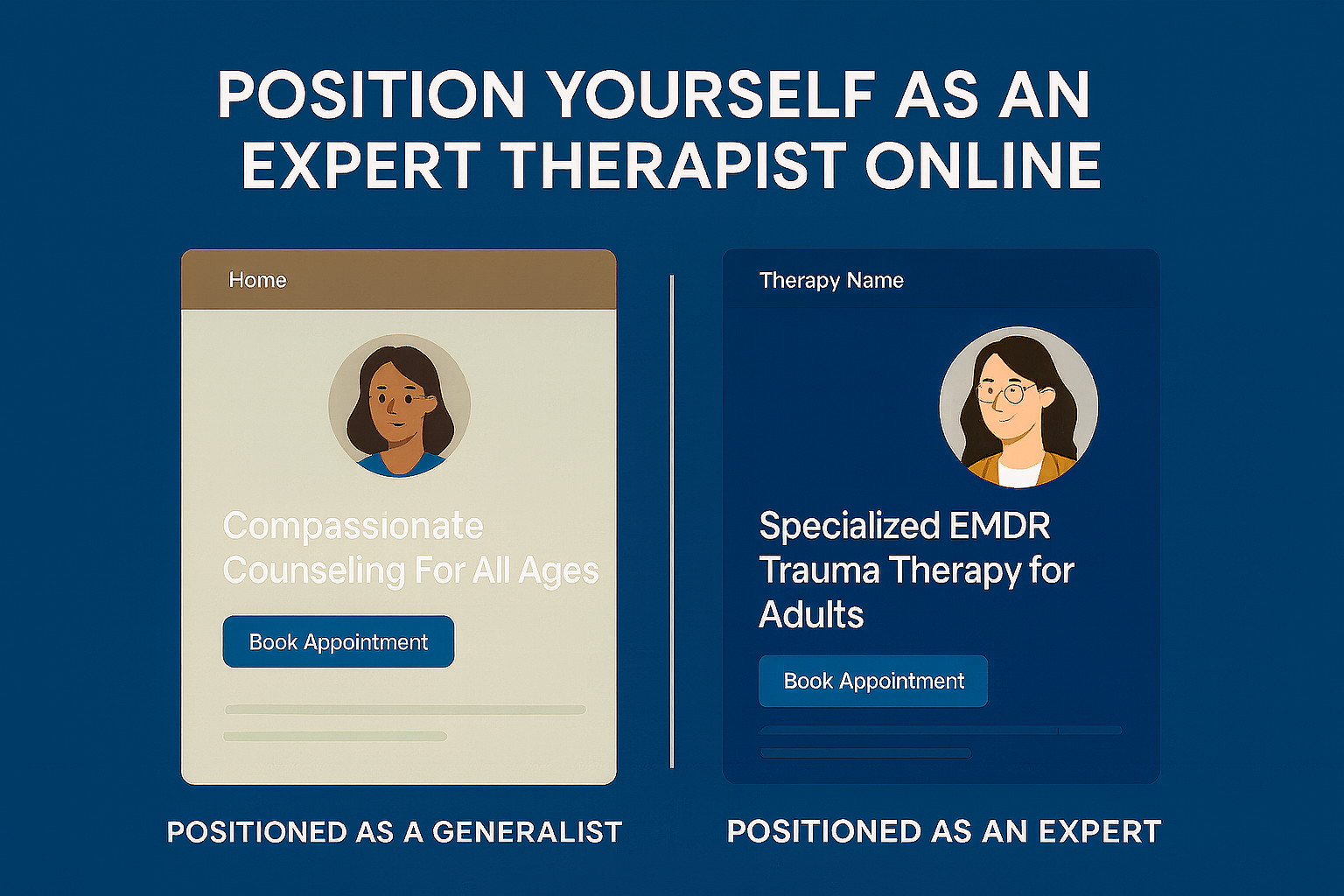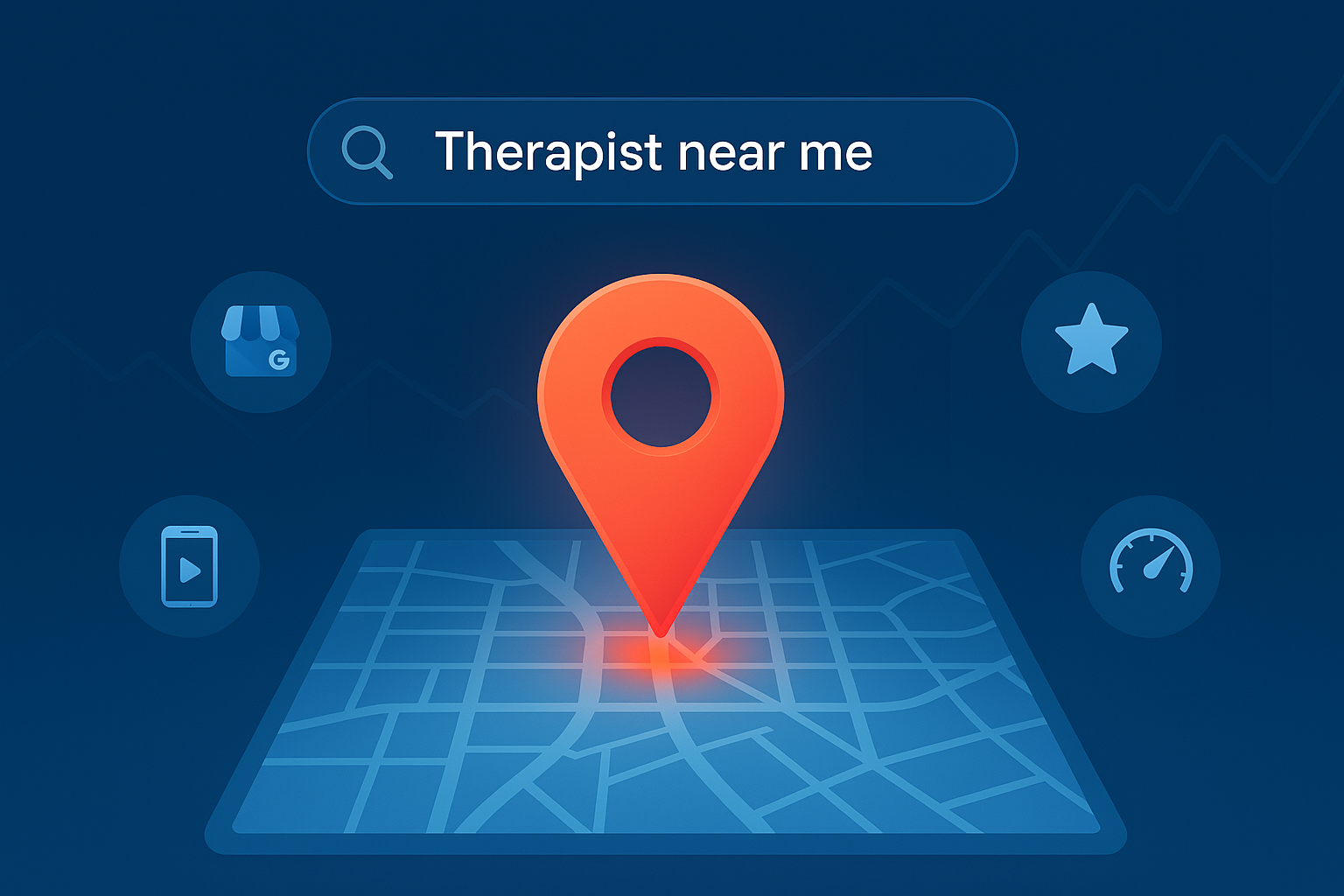Pay-per-click (PPC) advertising is a powerful tool for therapists aiming to grow their practice by reaching clients at the exact moment they’re searching for mental health support. By leveraging PPC for therapists, you can place your practice at the top of Google search results, driving qualified leads to your website and increasing bookings. Unlike search engine optimization (SEO), which takes months to yield results, PPC offers instant visibility, making it ideal for therapists seeking quick, measurable outcomes. This guide provides 10 actionable strategies to optimize PPC for therapists, ensuring your campaigns attract the right clients while maximizing return on investment (ROI). For a broader digital marketing perspective, explore The Ultimate Digital Marketing Guide.
Why PPC for Therapists Is Essential in 2025
PPC advertising allows therapists to target specific keywords, demographics, and locations, ensuring ads reach potential clients actively searching for therapy services. With 68% of online experiences starting with a search engine (BrightEdge), PPC for therapists helps you:
- Gain instant visibility at the top of search results.
- Attract qualified leads with targeted, long-tail keywords.
- Control budgets with flexible, pay-per-click pricing.
- Drive measurable results, such as increased inquiries and bookings.
By implementing a strategic PPC campaign, your practice can stand out in a competitive market. To complement PPC with organic strategies, check out SEO for Therapists.
1. Conduct Targeted Keyword Research for PPC for Therapists
Keyword research is the cornerstone of effective PPC for therapists. Selecting the right keywords ensures your ads appear for relevant searches, driving qualified traffic to your site.
- Focus on Long-Tail Keywords: Target specific phrases like “therapist for anxiety in [city]” or “online couples counseling” to attract clients with clear intent. Long-tail keywords have lower cost-per-click (CPC) and less competition.
- Use Keyword Tools: Platforms like Google Keyword Planner or SEMrush help identify high-volume, low-competition keywords relevant to your services.
- Incorporate Negative Keywords: Exclude terms like “free therapy” or “PTSD” if they don’t apply to your practice to avoid wasted clicks.
- Analyze Competitors: Review competitors’ ads to identify keywords they’re bidding on and adapt them for your campaign.
Action Tip: Build a list of 15–20 keywords, including PPC for therapists, to guide your campaign setup. For more on keyword strategies, visit Mental Health Therapist Website SEO.
2. Craft Compelling Ad Copy
Your ad copy must grab attention and encourage clicks while clearly conveying your services. Effective ad copy for PPC for therapists is concise, client-focused, and action-oriented.
- Highlight Benefits: Emphasize outcomes, such as “Find Relief from Anxiety with Expert Therapy.”
- Include Keywords: Incorporate PPC for therapists or related terms naturally in headlines and descriptions to improve ad relevance.
- Use Strong CTAs: Phrases like “Book Now” or “Schedule a Free Consultation” prompt immediate action.
- Add Ad Extensions: Include sitelink extensions (e.g., “Find a Therapist”) or call extensions to provide more information and boost click-through rates (CTR).
Action Tip: Write 2–3 ad variations per campaign and test them to identify the highest-performing copy. Learn more at How to Optimize Your Mental Health Website.
3. Optimize Landing Pages for Conversions
A well-designed landing page is critical for turning clicks into clients. Your landing page should align with your ad’s message and make it easy for visitors to take action.
- Ensure Relevance: Match the landing page content to the ad’s keywords and offer (e.g., a page on “anxiety therapy” for an ad targeting that term).
- Simplify Design: Use a clean, mobile-friendly layout with clear headlines, minimal navigation, and a prominent booking button.
- Include Trust Signals: Add testimonials (with consent), certifications, or HIPAA-compliant badges to build credibility.
- Optimize for Speed: Ensure the page loads in under 3 seconds to reduce bounce rates.
Action Tip: Create dedicated landing pages for each ad group and test them using tools like Google Optimize. For website optimization tips, see How a Fast Mobile-Friendly Website Can Boost Your Practice’s Growth.
4. Target Local Audiences with Geo-Targeting
Local targeting ensures your ads reach clients in your service area, making PPC for therapists highly effective for community-based practices.
- Set Geographic Parameters: Target specific zip codes, cities, or a radius around your office (e.g., 10 miles).
- Use Local Keywords: Bid on terms like “therapist in [city]” or “counseling services [neighborhood]” to capture local searches.
- Leverage Google My Business: Link your PPC ads to a verified Google My Business profile to enhance local visibility.
- Exclude Irrelevant Areas: Exclude locations outside your service area to optimize ad spend.
Action Tip: Start with a 5–15 mile radius and adjust based on campaign performance. Explore local strategies at Local SEO for Mental Health Therapists.
5. Utilize Ad Extensions to Enhance Visibility
Ad extensions provide additional information, making your ads more informative and clickable, a key component of PPC for therapists.
- Sitelink Extensions: Add links to specific pages, such as “Online Therapy” or “Book an Appointment.”
- Call Extensions: Include a phone number for direct calls, ideal for urgent inquiries.
- Location Extensions: Display your practice’s address to attract local clients.
- Callout Extensions: Highlight unique offerings, like “HIPAA-Compliant Teletherapy” or “Evening Appointments.”
Action Tip: Add at least 2–3 extensions to each ad group and monitor their impact on CTR. For more on ad strategies, visit Content Marketing Strategies.
6. Set a Realistic Budget and Bid Strategy
PPC allows you to control costs, but setting the right budget and bidding strategy is crucial for PPC for therapists to maximize ROI.
- Start Small: Begin with a daily budget of $10–$20 to test campaigns without overspending.
- Choose Manual Bidding: Manually set bids for keywords to maintain control over costs, especially for low-competition terms.
- Use Smart Bidding: Once you have data, switch to Google’s automated bidding (e.g., Maximize Conversions) to optimize for bookings.
- Monitor CPC: Therapy-related keywords often have manageable CPCs compared to other industries, so adjust bids to stay competitive.
Action Tip: Allocate 70% of your budget to high-performing keywords and review costs weekly. For budgeting tips, check out Mental Health Marketing Agency.
7. Track and Optimize Campaign Performance
Continuous monitoring is essential to ensure PPC for therapists delivers results. Tracking performance helps you refine campaigns and improve ROI.
- Use Google Ads Analytics: Monitor metrics like CTR, conversion rate, and cost-per-conversion.
- Set Conversion Goals: Track actions like form submissions, bookings, or calls to measure success.
- Perform A/B Testing: Test different ad copies, keywords, or landing pages to identify top performers.
- Adjust Underperforming Ads: Pause or reoptimize ads with low CTR or high bounce rates.
Action Tip: Review campaign data weekly and allocate more budget to high-performing ads. For analytics guidance, see Leveraging SEO for Mental Health.
8. Ensure HIPAA Compliance in PPC Campaigns
Protecting client privacy is critical for PPC for therapists. HIPAA compliance ensures trust and avoids legal issues.
- Use Secure Landing Pages: Ensure landing pages use HTTPS and HIPAA-compliant forms.
- Avoid Sensitive Data: Don’t collect identifiable information in ads or initial forms without consent.
- Partner with Compliant Platforms: Use tools like SimplePractice for secure booking and communication.
- Audit Regularly: Review ad platforms and landing pages for compliance with HIPAA standards.
Action Tip: Work with a HIPAA-compliant marketing agency to ensure your campaigns meet regulations. Learn more at HIPAA-Compliant Web Design.
9. Leverage Remarketing to Re-Engage Visitors
Remarketing targets users who visited your website but didn’t book, increasing conversions for PPC for therapists.
- Set Up Remarketing Audiences: Use Google Ads to create audiences based on pages visited (e.g., “Services” or “Contact”).
- Create Tailored Ads: Show ads to past visitors with messages like “Still Looking for Therapy? Book Today.”
- Use Display Ads: Place banner ads on third-party websites to keep your practice top-of-mind.
- Limit Frequency: Cap ad impressions to avoid overwhelming potential clients.
Action Tip: Start with a small remarketing budget and target users who spent over 30 seconds on your site. For more on client engagement, visit Social Media for LMFTs.
10. Combine PPC with Other Marketing Strategies
While PPC for therapists delivers quick results, combining it with other strategies enhances long-term growth.
- Integrate with SEO: Use PPC data to identify high-performing keywords for your SEO strategy.
- Leverage Social Media: Promote PPC landing pages on platforms like Instagram to drive additional traffic.
- Use Content Marketing: Share blog posts or videos to build trust, linking them to PPC landing pages.
- Encourage Reviews: Positive client reviews on Google or directories boost ad credibility.
Action Tip: Allocate 60% of your marketing budget to PPC initially, then shift to SEO and content as campaigns stabilize. Explore combined strategies at The Future of Teletherapy.
PPC Tools for Therapists
The following table highlights essential tools to support your PPC for therapists campaigns, streamlining setup and optimization.
| Tool | Purpose | Key Feature | Link for More Info |
|---|---|---|---|
| Google Ads | PPC campaign management | Keyword bidding and ad creation | SEO for Therapists |
| Google Keyword Planner | Keyword research | Identifies high-volume keywords | Mental Health Therapist Website SEO |
| Google Analytics | Performance tracking | Tracks conversions and traffic | Leveraging SEO for Mental Health |
| SEMrush | Competitor analysis | Analyzes competitor keywords | How to Optimize Your Mental Health Website |
| SimplePractice | HIPAA-compliant booking | Secure client communication | HIPAA-Compliant Web Design |
Conclusion
PPC for therapists is a proven strategy to drive more clients to your therapy practice in 2025. By conducting targeted keyword research, crafting compelling ads, optimizing landing pages, and ensuring HIPAA compliance, you can attract qualified leads and grow your practice efficiently. Start with a small budget, track performance, and combine PPC with SEO and content marketing for long-term success. For tailored PPC solutions, visit Mental Health IT Solutions to elevate your practice’s digital presence.







